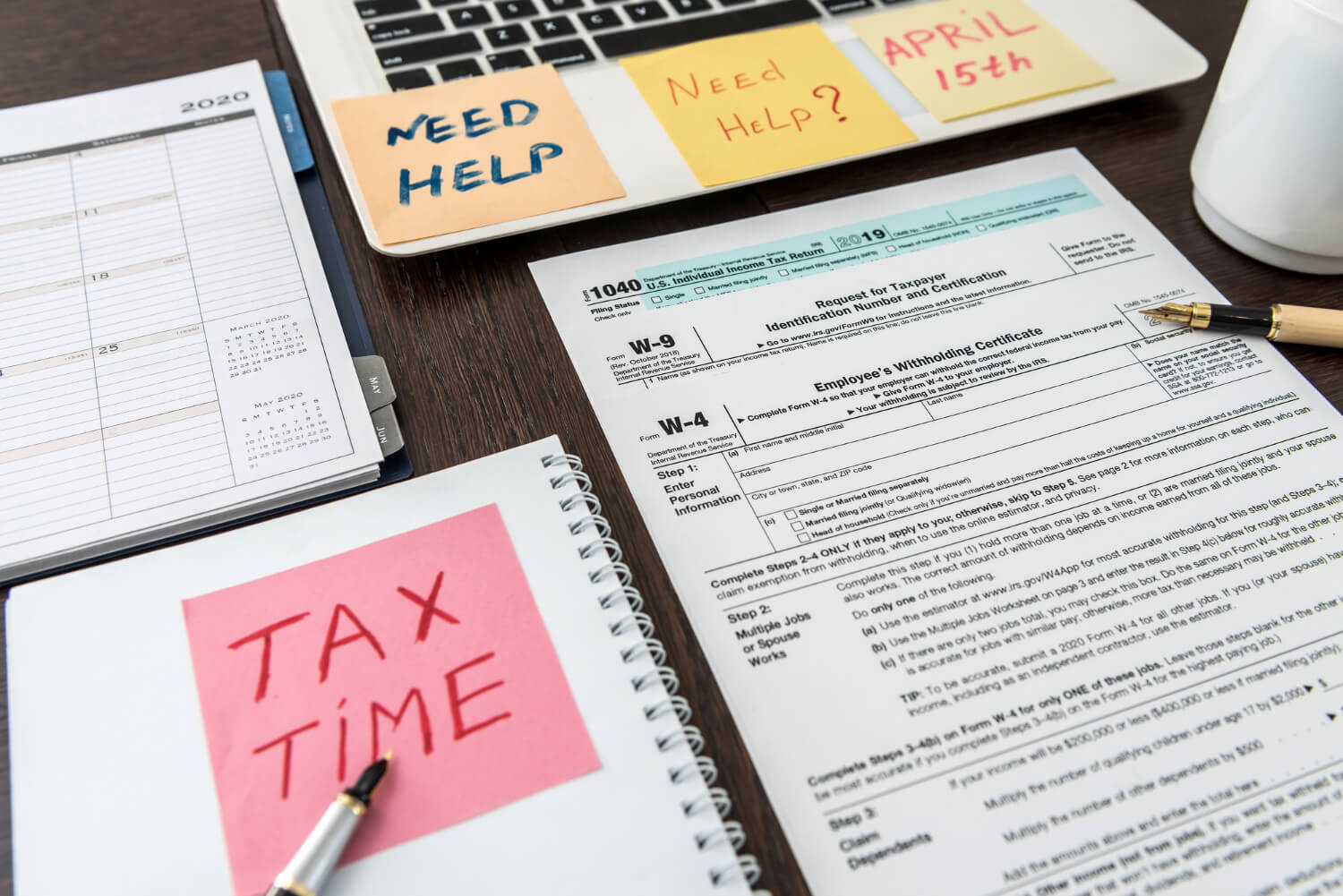Are you ready to take charge of your taxes and keep your finances in check? Filing income tax
returns might sound daunting, but don’t worry, we’ve got you covered! In this guide, we’re diving
into the world of tax filing, breaking it down into simple, easy-to-understand steps that will have
you feeling like a tax pro in no time.
Imagine this: you’re sitting down with your paperwork, ready to tackle your taxes like a champ.
With our guidance, you’ll breeze through the process, understanding every step along the way.
No more confusion, no more stress – just straightforward advice to help you navigate the world
of taxes with confidence.
So, why is filing income tax returns so important, you ask? Well, it’s all about staying on the right
side of the law and making sure your finances are in order. Plus, who doesn’t love the feeling of
getting their taxes done and dusted?
In this guide, we’ll walk you through everything you need to know about filing your taxes. From
gathering your documents to filling out the forms, we’ve got tips and tricks to make the process
a breeze. And don’t worry if you’re feeling overwhelmed – we’ll break it down into bite-sized
chunks that are easy to digest.
By the time you finish reading, you’ll be ready to tackle your taxes effectively. So sit back, relax,
and let’s dive into the wonderful world of income tax returns!
Understanding Income Tax Returns
Income tax returns (ITRs) are like a financial report card you give to the government each year.
They show how much money you made, and other important money stuff. Think of it as a way to
tell the government about your income and taxes for the year.
But why do we have to do this? Well, it helps the government keep track of everyone’s finances
and make sure they’re paying the right amount of taxes. Plus, it’s a way for you to show that
you’re being responsible with your money.
When you fill out your tax return, you’re saying, “Here’s how much I earned this year, here are
my deductions (like expenses or investments), and here’s how much tax I owe.” It’s kind of like a
puzzle where you fit in all the pieces of your financial life.
Now, let’s break it down a bit more. Your income is the money you earn from your job,
investments, or any other source. Expenses are things like rent, groceries, or medical bills that
you can subtract from your income to lower your taxable amount. Taxes are the money you owe
to the government based on how much you earn.
So, when you fill out your tax return, you’re telling the government. It’s like a way to keep
everything transparent and make sure everyone’s paying their fair share.
And that’s why understanding income tax returns is important! It’s not just about paperwork – it’s
about being accountable for your finances and making sure the government has the info they
need to keep things running smoothly. Plus, knowing how to do your taxes can save you money
and help you avoid any headaches come tax time.
Importance of Filing Income Tax Returns
Filing income tax returns holds immense significance for individuals, serving as a cornerstone of
financial responsibility and contributing to the broader societal framework.
Firstly, it serves as a shield against penalties and legal entanglements, ensuring compliance
with tax regulations and keeping individuals out of trouble with the authorities. By adhering to
deadlines and fulfilling tax obligations promptly, one can sidestep unnecessary headaches and
maintain a clean record with the law.
Moreover, filing ITR opens doors to potential refunds, akin to uncovering hidden treasures.
Individuals can reclaim overpaid taxes, providing a welcome financial boost and ensuring they
receive what is rightfully theirs from the tax authorities. It’s like a small windfall from the taxman,
adding a silver lining to the tax season.
Furthermore, ITRs function as comprehensive financial resumes, showcasing an individual’s
financial history and credibility. This documentation proves invaluable for various purposes,
including visa applications, legal asset acquisitions, and securing loans. Whether it’s
demonstrating financial stability to lenders or furnishing evidence of income for official
proceedings, these returns serve as vital proof of financial standing.
Additionally, filing returns allows individuals to carry forward losses, providing a strategic
advantage in future tax planning and mitigating financial setbacks. This flexibility enables
individuals to optimize their tax liabilities over time, leveraging past losses to offset future gains
and ensuring efficient tax management.
Beyond personal benefits, filing ITRs embodies a civic duty and responsibility towards the
nation. Taxes collected contribute to funding essential services and infrastructure, such as
roads, schools, and healthcare facilities, thereby fostering societal progress and well-being. By
fulfilling tax obligations, individuals actively participate in the collective effort to support public
services and contribute to the common good.
In essence, filing income tax returns transcends mere compliance; it symbolizes financial
empowerment, legal integrity, and civic engagement. It’s not just about individual finances but
also about upholding societal responsibilities and contributing to the greater good. So, when tax
season arrives, embrace it as an opportunity to assert financial independence, uphold legal
obligations, and play a part in shaping a better future for all.
Types of Income Tax Returns (ITRs)
The Income Tax Department prescribes various types of ITR forms to cater to different taxpayer
categories:
- ITR-1 (Sahaj):
- Used by individual taxpayers who have income from salary or pension, one house property, and other sources (excluding income from lottery and horse races).
- Applicable for individuals with a total income of up to ₹50 lakh.
- ITR-2:
- Applicable to individuals and Hindu Undivided Families (HUFs) who do not have income from business or profession.
- Suitable for individuals having income from salary, multiple house properties, capital gains, and other sources.
- ITR-3:
- Used by individuals and HUFs having income from business or profession.
- Applicable for taxpayers who have income from proprietary business or profession.
- ITR-4 (Sugam):
- Designed for individuals, HUFs, and firms (other than LLP) who have opted for a presumptive income scheme under sections 44AD, 44ADA, and 44AE of the Income Tax Act.
- Suitable for taxpayers with business income computed on a presumptive basis.
- ITR-5:
- Applicable to firms, LLPs (Limited Liability Partnerships), AOPs (Association of Persons), BOIs (Body of Individuals), artificial juridical persons, and cooperative societies.
- They are used for filing income tax returns by entities other than individuals, HUFs, and companies.
- ITR-6:
- Used by companies other than companies claiming exemption under section 11 (Income from property held for charitable or religious purposes).
- Applicable to companies, including those filing returns under section 115JB (Minimum Alternate Tax).
- ITR-7:
- Used by persons, including companies, who are required to furnish returns under sections 139(4A) or 139(4B) or 139(4C) or 139(4D) or 139(4E) or 139(4F) of the Income Tax Act.
- Applicable for entities such as trusts, political parties, research associations, colleges, universities, etc., who are required to file returns under specific provisions of the Income Tax Act.
Each form is tailored to accommodate the diverse income sources and structures of taxpayers,
Key Steps in the Income Tax Return Filing Process
ensuring comprehensive reporting and compliance with tax regulations.
Filing income tax returns involves several critical steps, ensuring accuracy and adherence to tax
regulations:
● Document Collection: Gather all necessary documents, including Form 16, bank
statements, investment proofs, and PAN card.
● Selecting the Right ITR Form: Choose the appropriate ITR form based on income
sources and financial activities.
● Income Calculation: Compute total income for the assessment year, considering all
income sources and applicable deductions.
● Filing Method: Decide between online and offline filing methods, depending on eligibility
and convenience.
● Verification and Submission: Review the filled-in details meticulously, verify the return
using Aadhaar OTP, EVC, or digital signature, and submit it before the deadline.
Common Mistakes to Avoid
To ensure a smooth filing process, individuals should steer clear of common mistakes, including:
● Providing inaccurate information or omitting income sources.
● Missing out on eligible deductions and exemptions.
● Failing to file returns within the stipulated deadline.
Let’s talk about some smart moves to make sure your tax filing journey goes super smoothly.
Picture this: you’re cruising through tax season, avoiding those pesky mistakes that can trip you
up.
First off, accuracy is key. Make sure you’re giving the tax folks the right info about your income.
Don’t forget to mention all the cash streams you’ve got flowing in. It’s like giving them the full
picture of your financial puzzle.
Now, let’s talk about deductions and exemptions. These are your secret weapons for keeping
more of your hard-earned money in your pocket. Don’t miss out on them! It’s like finding hidden
treasure in your tax forms.
Next up, deadlines. They’re not just suggestions, they’re serious business. Missing the filing
deadline can lead to a whole heap of headaches, like late fees and penalties. So mark those
dates on your calendar and make sure you hit ’em.
But hey, if all this tax talk feels overwhelming, don’t sweat it. We’ve got your back. Stick around,
and we’ll guide you through the maze of tax rules and regulations, making it as easy as pie (or
at least as easy as possible!).
Remember, avoiding these common slip-ups is like giving yourself a smooth ride through tax
season. So buckle up, stay sharp, and let’s make filing your taxes a breeze

Get Your Income Tax Filled with Rebus Consultancy
In simple terms, filing your income taxes is like a grown-up version of tidying your room—it’s
something we all have to do to keep things in order. Just like you sort your toys and clothes into
the right places, you sort out your income and expenses for the taxman.
But don’t worry, it’s not as complicated as it seems! This guide is here to help you through the
process, step by step. We’ll break down everything you need to know in a way that’s easy to
understand, so you can breeze through tax season without breaking a sweat.
Think of it as a roadmap for tax success. We’ll show you how to gather all your financial
documents, fill out the forms correctly, and make sure you’re not paying more tax than you need
to. Plus, we’ll throw in some tips and tricks to help you keep more money in your
pocket—because who doesn’t love that?
So grab a cup of tea, get cozy, and let’s dive into the wonderful world of taxes together. By the
time you’re done, you’ll feel like a tax-filing pro, ready to conquer your financial responsibilities
like a boss. Let’s get started!
Frequently Asked Questions:
Why do I need to file income tax returns?
Filing your income tax returns is like telling the government about your finances. It helps
them make sure everyone is paying the right amount of taxes. Plus, it’s a way for you to
show that you’re responsible with your money.
What happens if I miss the tax filing deadline?
Missing the deadline can lead to trouble! You might face penalties and extra fees. So it’s
important to mark those dates on your calendar and file on time to avoid any headaches.
How can I claim refunds through tax filing?
Filing your returns could mean extra cash in your pocket! If you’ve paid too much tax,
you can claim refunds. It’s like finding money you didn’t know you had.
What documents do I need for tax filing?
Gather up your paperwork! You’ll need stuff like your Form 16, bank statements, and
proof of investments. It’s like getting all your tools ready before starting a project.

Leave A Comment